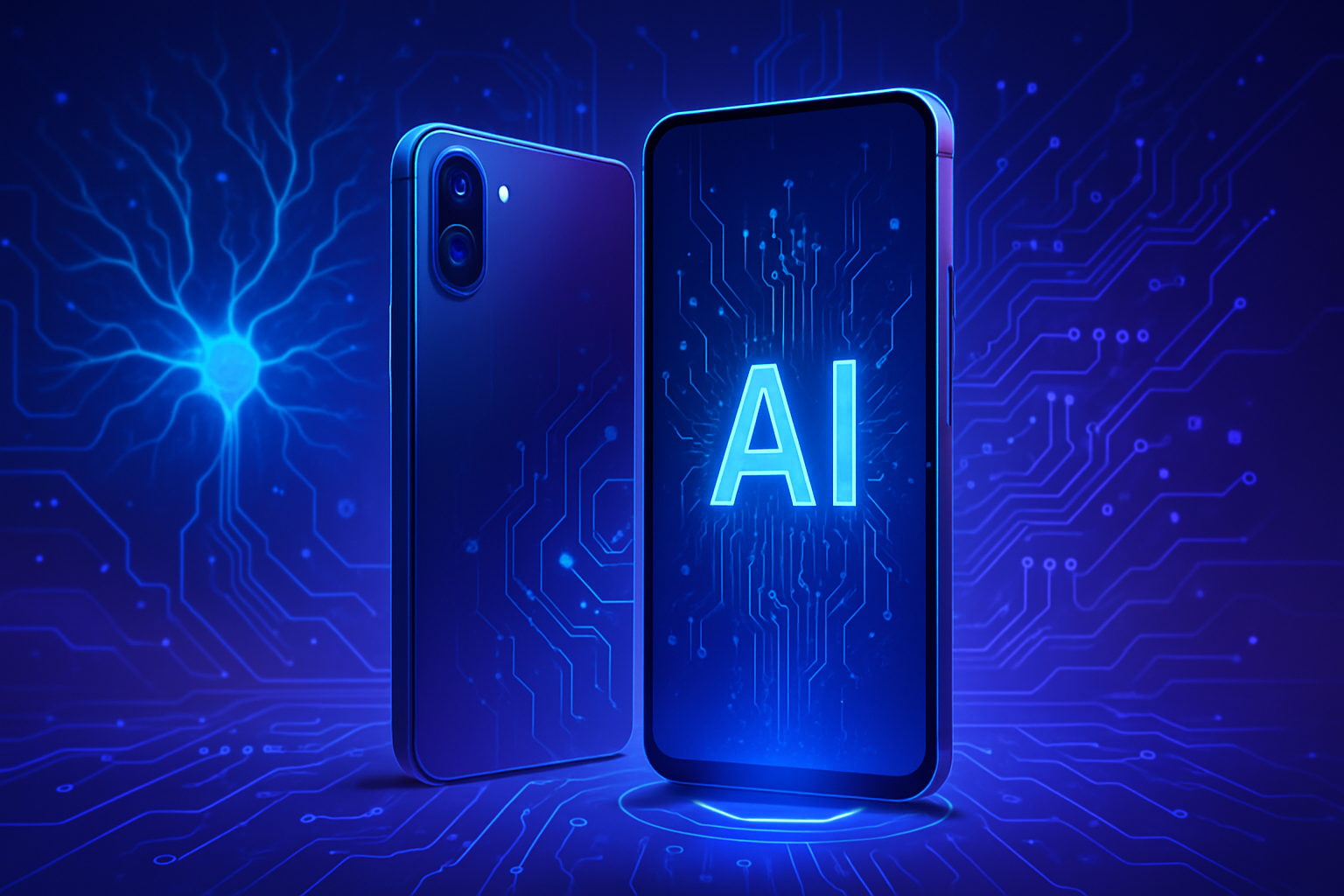Google prioritizes artificial intelligence for its new smartphones
Google is reshaping its strategy by focusing on artificial intelligence rather than hardware improvements during the presentation of its latest smartphones. This bold choice raises fundamental questions about the future of mobile technology. The evolution of consumer expectations is prompting tech giants to innovate differently in an increasingly competitive ecosystem.
The new models demonstrate a deep integration of AI algorithms, capable of transforming the user experience with unprecedented features. A clear focus on software optimization surpasses mere hardware enhancements, making the user experience more intuitive and personalized. This paradigm shift marks a revolution in the smartphone sector, redefining standards of performance and functionality.
Priority on Artificial Intelligence
During its recent presentation, Google emphasized the importance of artificial intelligence (AI) at the expense of hardware improvements. The company demonstrated its ambition to position AI at the core of its ecosystem, especially through its new smartphones. By integrating intelligent features, Google aims not only to enhance the user experience but also to strengthen its competitiveness in the mobile device market.
New AI Features of Smartphones
The new smartphone models from Google offer advanced AI tools capable of optimizing photo taking and app management. With better collaboration between machine learning algorithms and existing hardware, users will benefit from unprecedented features, such as contextual suggestions and improvements in low-light captures. The combination of these technologies creates a synergy that promises to enhance intuitive interaction with devices.
Google Ecosystem and AI
Google does not limit itself to simple functionality in its smartphones. The company plans to deploy AI across its entire ecosystem, from home devices to cloud services. This integrated approach allows for a cohesive experience, where each device communicates effectively thanks to technological advancements. The optimization of voice and hardware systems suggests more natural and fluid interactions.
Competition and Market
In the face of increased competition in the smartphone sector, Google seeks to distinguish itself by emphasizing AI rather than refined hardware features. Details regarding the latest advancements of ChatGPT also illustrate this dynamic. Rapid innovation in the field of AI makes hardware distinctions less relevant compared to intelligent enhancements.
Implications for the Technology Sector
This strategy underscores a broader trend among tech giants to prioritize AI. For instance, Apple is also exploring integrated robotic solutions, reflecting a race for innovation where AI prevails. Such an evolution requires companies to adapt quickly to remain relevant in a constantly evolving technological landscape.
Investments and Opportunities
The issues related to AI regulation do not escape Google. The recent partnerships between the United Kingdom and Singapore illustrate a willingness to organize and secure this development. For companies, investing in AI represents not only a challenge but also an opportunity to redefine technological potential, enhancing the appeal of their products.
The implications of these AI advancements also raise concerns. It is necessary to consider how to protect jobs in the face of the inevitable rise of these technologies. The quest for a balance between innovation and regulation becomes crucial to avoid adverse consequences on the labor market.
In summary, Google’s emphasis on artificial intelligence marks a crucial turning point in how the technology industry evolves. The integration of AI in smartphones seems to be a trend that will guide the future development of other companies, challenging traditional hardware boundaries. This dynamic reshapes the landscape and underscores the need for companies to adapt their strategies accordingly.
Frequently Asked Questions
Why does Google prioritize artificial intelligence in its new smartphones?
Google believes that artificial intelligence offers more suitable performance for users’ needs, improving experience, personalization, and daily task management, rather than focusing solely on hardware specifications.
What specific improvements does AI bring to Google smartphones?
Improvements brought by AI include features such as advanced voice recognition, photography optimization, real-time translation, and task automation, providing a more intuitive use.
How does AI impact the battery life of Google smartphones?
AI optimizes energy consumption by learning usage habits and adjusting app performance, which allows for longer battery life without requiring additional hardware.
What are some concrete examples of AI usage in the new Google smartphones?
Examples include enhancing low-light photography through image processing algorithms, the Google Assistant anticipating user needs, and smart notifications prioritizing the most important information.
How can users benefit from AI-based updates?
AI-based updates allow for continuous improvements to existing features, adding new capabilities, and refining the user experience without requiring hardware changes, making the device more performant over the long term.
Does the emphasis on AI mean that the hardware of Google smartphones is neglected?
No, Google continues to develop performant hardware, but it chooses to highlight AI to maximize efficiency and user experience, emphasizing that both aspects work together to provide an optimal product.
How does artificial intelligence contribute to the security of Google smartphones?
AI helps detect suspicious behavior, improves facial unlocking and biometric authentication, and enhances the protection of personal data, ensuring safer use of devices.
Should users be concerned about data privacy with the integration of AI?
Google implements strict security protocols and transparency regarding data usage to protect users’ privacy, ensuring that data is used responsibly and securely.






